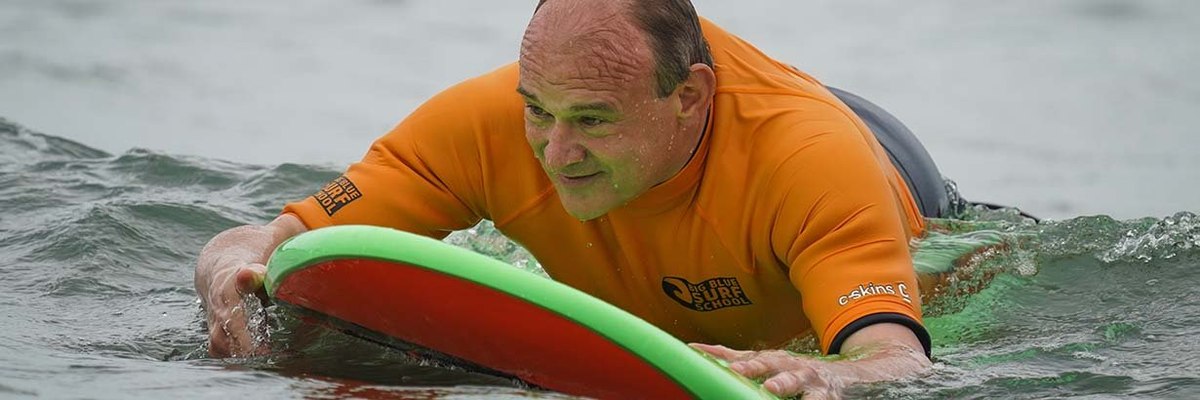The Lib Dem leader has seen the largest improvement in his personal ratings over the campaign
One of the most memorable aspects of the 2024 general election campaign has been the antics of Liberal Democrat leader Ed Davey. Whether it be falling off a paddle board, going down a waterslide, or bungee jumping, the former energy secretary could frequently be found on the front pages apparently having the time of his life.
Lighthearted though the stunts may be, they serve a serious purpose. Ed Davey has justified them by saying that they help draw attention to the party’s policies, while others have noted their necessity for a smaller party that would otherwise struggle to get any airtime.
So what do Britons make of Ed Davey’s approach?
Ed Davey’s favourability has risen over the campaign
Looking at favourability figures, the results show that Davey is the only party leader to have experienced a significant improvement in ratings since the beginning of the campaign.
In the last favourability poll prior to the election being announced, only 15% of Britons had a favourable view of Davey. In our final poll two days before the general election, that figure had risen to 30%.
By contrast, the number of people with a positive view of Rishi Sunak, Keir Starmer and Nigel Farage’s looks very similar to their pre-campaign figures.
While the number of people with an unfavourable view of Ed Davey has also increased over the campaign, it has increased at a slower rate. This means that in net terms Ed Davey is still ending the campaign with a higher score (-6) than he started on (-12 if you look at the last poll before the campaign, some months previously in October, or -20 if you look at the first time we asked about Davey during the campaign on 30 May). In net terms all the other leaders are in almost the exact same place as where they started.
Ed Davey has also outperformed his predecessors at the 2017 and 2019 general elections. In 2019 Jo Swinson saw her favourable figure stay about the same (from 20% to 19%) but her net favourability figure decrease significantly (from -24 to -44), while in 2017 Tim Farron’s favourable rating rose eight points (from 14% to 22%) but his overall net favourability rating fell by seven (from -19 to -26).
Lib Dems and Greens most likely to be seen as fighting a positive campaign
The public are twice as likely (26% vs 13%) to think that the Lib Dems fought a mostly positive campaign - i.e. focussed more on the positives of their own party and policies - as a negative one - i.e. one that focussed more on the negatives of their opponents' parties and policies. Another 15% think they focussed on both approaches equally.
By contrast, most people say the Tories fought a primarily negative campaign (57%), and this is the most common answer when it comes to Labour (45%) and Reform UK (35%) as well.
The Greens are also more likely than not to be seen as having fought a positive campaign (25% vs 9% negative), although almost half of Britons answered “don’t know” (48%).
Conservative voters are split on whether their party's campaign was positive (31%), negative (30%) or both equally (30%). Labour voters are also relatively split on their own party's approach, with a third considering it positive (34%), a quarter negative (24%) and another third both equally (32%).
By contrast, most Reform UK voters (57%) and Green voters (56%) say their parties fought positive campaigns, as do 47% of Lib Dem voters.
Ed Davey and Keir Starmer most likely to receive favourable views for the way they campaigned
The public are divided on Ed Davey’s campaigning style – but this proves a more positive rating than other leaders receive.
A quarter of Britons say they have a favourable view of the way Davey campaigned (26%), with a similar proportion (23%) having an unfavourable opinion – 31% had neither a positive nor negative take on his personal campaign.
By contrast, most Britons (53-54%) have an unfavourable view of both Rishi Sunak and Nigel Farage’s campaigns.
While about as many Britons have a positive view of Keir Starmer’s campaign (25%) as Davey’s, they are more likely to be negative about it (34%).
Attitudes to the campaigning by Green co-leaders Carla Denyer and Adrian Ramsay split 16% positive, 17% negative, and 32% neutral – with a further third unsure entirely (33%).
What do you think about a Labour landslide, the election campaign, and everything else? Have your say, join the YouGov panel, and get paid to share your thoughts. Sign up here.
Photo: Getty















